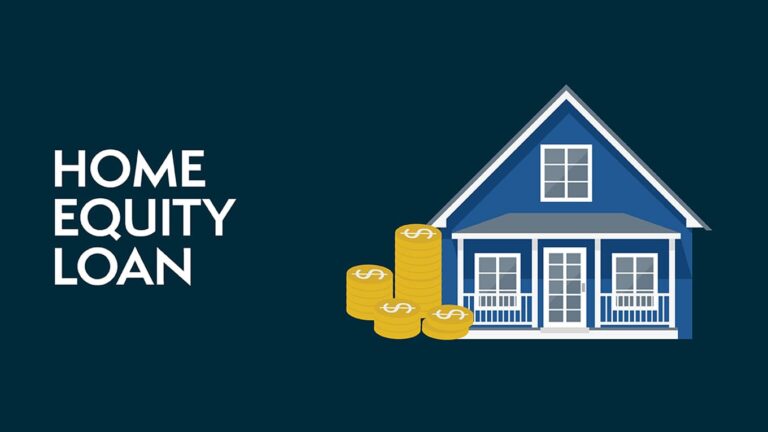How Does a Home Equity Loan Work in Canada?
- Home
- Blog

Home equity loans are a popular financing option for homeowners in Canada. A home equity loan allows you to borrow money against the equity in your home, which is the difference between the market value of your home and the outstanding mortgage balance. These loans are often used for major expenses, such as home renovations, paying off high-interest debt, or financing education or other life events. In Canada, home equity loans are regulated by the federal government and are subject to strict lending guidelines. In this article, we will explore how home equity loans work in Canada and provide insights on how to obtain a home equity loan in Mississauga.
What is a Home Equity Loan?
A home equity loan is a type of loan that allows homeowners to borrow money using their home equity as collateral. Home equity is the portion of the home that the homeowner owns outright and is determined by the difference between the home’s market value and the outstanding mortgage balance. Home equity loans are also known as second mortgages, as they are a secondary loan that is secured by the property.
How do Home Equity Loans Work?
Home equity loans work by allowing homeowners to borrow against the equity in their home. The amount that can be borrowed is determined by the value of the home and the amount of equity that the homeowner has. Generally, lenders will allow homeowners to borrow up to 80% of the home’s appraised value, minus the outstanding mortgage balance.
Home equity loans in Mississauga are typically offered with a fixed interest rate, which means that the interest rate will not change for the duration of the loan term. The loan term can vary but is usually between five and 30 years. Homeowners can use the funds from a home equity loan for a variety of purposes, including home renovations, debt consolidation, and other major expenses.
Home equity loans are repaid in monthly installments, with each payment consisting of both principal and interest. The repayment period can vary depending on the lender and the loan terms but is usually between five and 30 years.
The interest rate is typically lower than that of a credit card or personal loan, as the loan is secured by the property. This means that if the borrower defaults on the loan, the lender has the right to foreclose on the property in order to recover the outstanding balance. However, it also means that borrowers must be cautious when taking out a home equity loan, as they could risk losing their home if they are unable to make the required payments.
In Canada, home equity loans are offered by banks, credit unions, and other financial institutions. Borrowers must have a certain amount of equity in their home to qualify for a loan. Typically, lenders will require that the borrower has at least 20% equity in their home, although some lenders may be willing to lend to borrowers with less equity.
When applying for a home equity loan, borrowers will need to provide documentation to the lender, including proof of income, a recent appraisal of the property, and a copy of the mortgage statement. The lender will use this information to determine the amount of equity in the home and the borrower’s ability to repay the loan. Borrowers with a good credit score and a stable income are more likely to be approved for a loan and may also qualify for a lower interest rate.
The amount that can be borrowed through a home equity loan in Mississauga, Canada is typically limited to 85% of the appraised value of the home, minus the outstanding mortgage balance. This means that if a borrower has a home worth $500,000 and a mortgage balance of $300,000, they may be able to borrow up to $125,000 through a home equity loan ($500,000 x 85% – $300,000 = $125,000). This update reflects the current lending practices in 2024.
Home equity loans in Canada are typically offered with a fixed interest rate, which means that the interest rate will not change for the duration of the loan term. The loan term can vary but is usually between five and 30 years. Borrowers will make monthly payments on the loan, which will consist of both principal and interest. The repayment period can vary depending on the lender and the loan terms but is usually between five and 30 years.
One thing to keep in mind when considering a home equity loan in Canada is that the interest rates can vary depending on the lender and the borrower’s creditworthiness. Borrowers should shop around and compare lenders to find the best home equity loan rates and terms. They should also be aware of any fees or charges associated with the loan, such as appraisal fees or origination fees.
Benefits of a Home Equity Loan
There are several benefits to obtaining a home equity loan, including:
- Lower interest rates: Home equity loans typically have lower interest rates than unsecured loans, as they are secured by the property.
- Tax deductions: Interest payments on a home equity loan may be tax-deductible, which can help reduce the overall cost of borrowing.
- Access to funds: Home equity loans provide homeowners with access to funds that they may not be able to obtain through other types of financing.
- Flexibility: Homeowners can use the funds from a home equity loan for a variety of purposes, including home renovations, debt consolidation, and other major expenses.
How to Obtain a Home Equity Loan in Mississauga
To obtain a home equity loan in Mississauga, homeowners will need to meet certain requirements and provide documentation to the lender. The following are the steps involved in obtaining a home equity loan:
- Determine the amount of equity in your home: Homeowners should determine the amount of equity in their home by subtracting the outstanding mortgage balance from the current market value of the property.
- Choose a lender: Homeowners should shop around and compare lenders to find the best home equity loan rates and terms.
- Gather documentation: Homeowners will need to provide documentation to the lender, including proof of income, a recent appraisal of the property, and a copy of the mortgage statement.
- Apply for the loan: Homeowners can apply for the loan online, over the phone, or in person. The lender will review the application and may request additional documentation.
- Receive funds: If the loan is approved, the funds will be disbursed to the homeowner. Homeowners can use the funds for any purpose, including home renovations, debt consolidation, and other major expenses.
Conclusion
Home equity loans Mississauga is a popular financing option for homeowners in Canada. They allow homeowners to borrow money against the equity in their home, and can be used for a variety of purposes, including home renovations and debt consolidation. Overall, a home equity loan can be a good option for homeowners in Canada who need access to cash for major expenses. However, borrowers should be cautious and only borrow what they can afford to repay, as they could risk losing their home if they default on the loan. It is also important to shop around and compare lenders to find the best home equity loan rates and terms.

